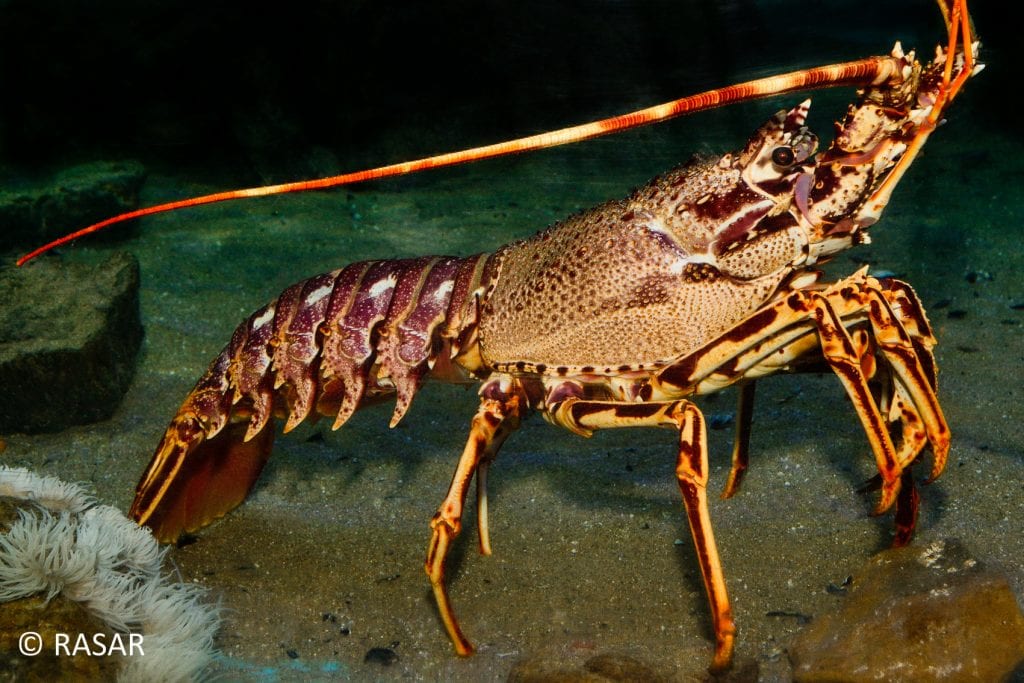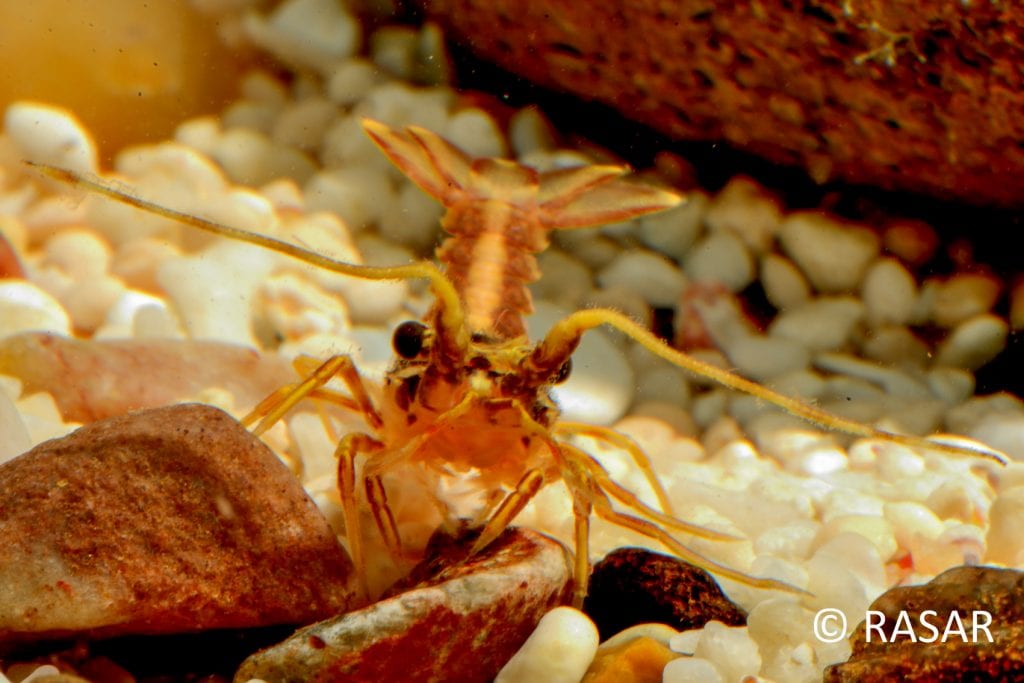

With funding from the Fishmongers’ Company, researchers have successfully cultured, for the first time in Europe, juveniles of one of the planet’s most valuable seafood species: the European spiny lobster, Palinurus elephas.
The UK’s wild population of the spiny lobster has been severely depleted, decreasing 90% from the 1970s, with the UK fishery now described as residual. The species is still fished but remains a high priority species for biodiversity conservation. However, demand for the species continues to rise.

This creates an opportunity to farm the spiny lobster. As communal animals they can be cultured at high densities and in Australia researchers have closed the life cycle (from hatch to maturity) of their native spiny lobster species and are moving into commercial production. Now, with support from the Fishmongers’ Company’s Fisheries Charitable Trust, researchers from RAS Aquaculture Research have provided the University of Exeter with feed samples for biochemical analysis. This data will hopefully indicate some key nutrients important to the growth and survival of the larval lobsters during early development. Several new, experimental diets have been trialed, the results of which are to be used to support an upscale in production during the 2020 season.

The settlement time – the time after which juvenile lobsters descend to the sea floor from the plankton – has been reduced from 8-9 months in the wild to 2.5 months under controlled culture, supporting faster growth and development.
This progress represents an exciting chance to boost the UK’s sustainable aquaculture industry, protecting the wild stock of a vulnerable native species and providing export opportunities for its seafood trade.